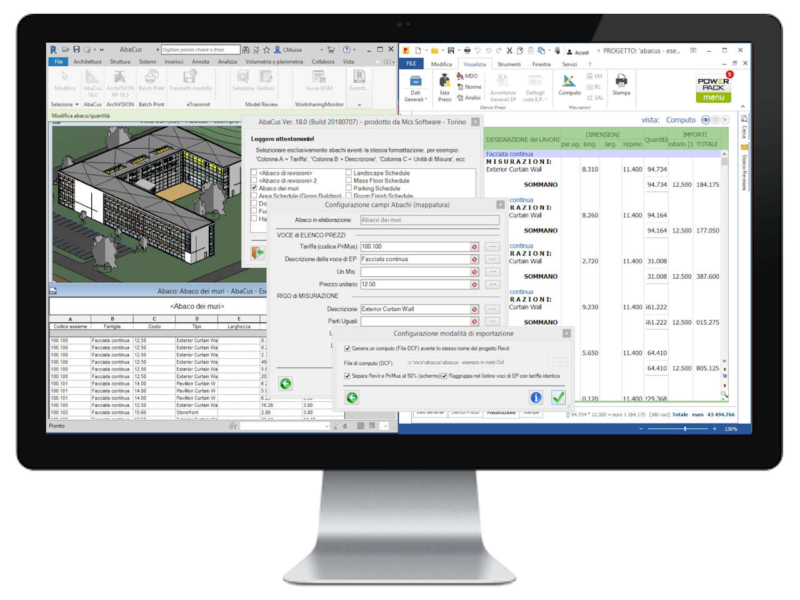

On August 5, 2015, the Air Force received timely proposals from seven offerors, but the agency rated only the proposals of Abacus and Oasis as technically acceptable. In this respect, the worksheet provided columns for firms to identify their FY labor rates for FY 2015 through FY 2018.

In addition to the contractor FY worksheet, the cost format workbook included a labor rates worksheet, in which offerors were to identify their FY labor rates for all labor categories. Thus, to the extent an offeror proposed to increase its labor rates or other cost elements at the start of its FY, these changes were to be captured and reflected in the contractor FY worksheet.
#ABACUS TECHNOLOGY CORP FULL#
For example, for the base period, an offeror with a FY aligned with the calendar year was to identify its labor rates under each CPFF CLIN for the period of Novemthrough December 31, 2015, and for the period of Januthrough November 24, 2016, with a third column providing for the total CLIN cost for the full base period.

In this regard, while the periods of performance for the CPFF CLINs were aligned with the task order years ( i.e., beginning on November 25 of one year and ending on November 24 of the following year), the contractor FY worksheet required offerors to further divide these CLINs into time periods aligned with their FY. The cost format workbook contained several worksheets, one of which required offerors to identify their proposed costs for the CPFF CLINs by contractor fiscal year (FY). To facilitate the evaluation of cost/price, the RFTOP instructed offerors to complete a cost format workbook which was included as an attachment to the solicitation. The RFTOP further provided that the “burden of proof for establishing the realism of all proposed costs rests with the offeror.” Id. The RFTOP advised that the Air Force would develop independent labor rate estimates for offerors’ proposed labor categories and that the agency would adjust an offeror’s labor rates that were less than the agency’s estimated rates if the firm’s proposal failed “to convincingly demonstrate and substantiate” that the offeror could “successfully perform contract requirements and retain highly qualified personnel at the rates proposed.” Id. With respect to labor costs, the solicitation provided historical staffing estimates across four broad program areas, but required offerors to identify the labor categories they would use to meet the RFTOP’s requirements. at 265.Īs relevant here, the RFTOP provided that the agency would perform a cost realism analysis in accordance with Federal Acquisition Regulation § 15.404-1(d), and that the agency would adjust offerors’ proposed costs to the extent the agency found them unrealistic. With respect to the evaluation of cost/price, the RFTOP provided that an offeror’s total evaluated price (TEP) would be calculated by summing the offeror’s proposed FFP for the transition period CLIN, agency-provided plug numbers for the travel reimbursement CLINs, and the offeror’s evaluated costs for the CPFF CLINs. The RFTOP established that selection would be made using a lowest-priced, technically acceptable (LPTA) evaluation scheme, with technical acceptability evaluated under the following three technical subfactors: (1) task order management plan (2) resource allocation plan and (3) transition (phase-in/phase-out planning). Agency Report (AR), Tab 3E, Answers to Offeror Questions, at 1-2. Under the RFTOP, offerors were to assume that the base period would begin on November 25, 2015. The anticipated period of performance for the task order includes a 30-day transition period, 1-year base period, and two 1-year options. The RFTOP contemplated the issuance of a cost-plus-fixed-fee (CPFF) task order, with a firm-fixed-price (FFP) contract line item (CLIN) for a transition period, and cost-reimbursement CLINs for travel. Contracting Officer’s (CO’s) Statement at 1-2, 7. The agency issued the RFTOP on July 10, 2015, to all firms holding a contract under the Air Force’s Engineering and Technology Acquisition Support Services multiple-award, indefinite-delivery/indefinite-quantity (ID/IQ) contract, which is set aside for small businesses. The protester argues that the agency conducted a flawed cost realism evaluation. FA8721-15-D-0010-0003, issued by the Department of the Air Force for engineering and technology acquisition support services. Abacus Technology Corporation, of Chevy Chase, Maryland, protests the issuance of a task order to Oasis Systems, LLC, of Lexington, Massachusetts, under request for task order proposals (RFTOP) No.


 0 kommentar(er)
0 kommentar(er)
